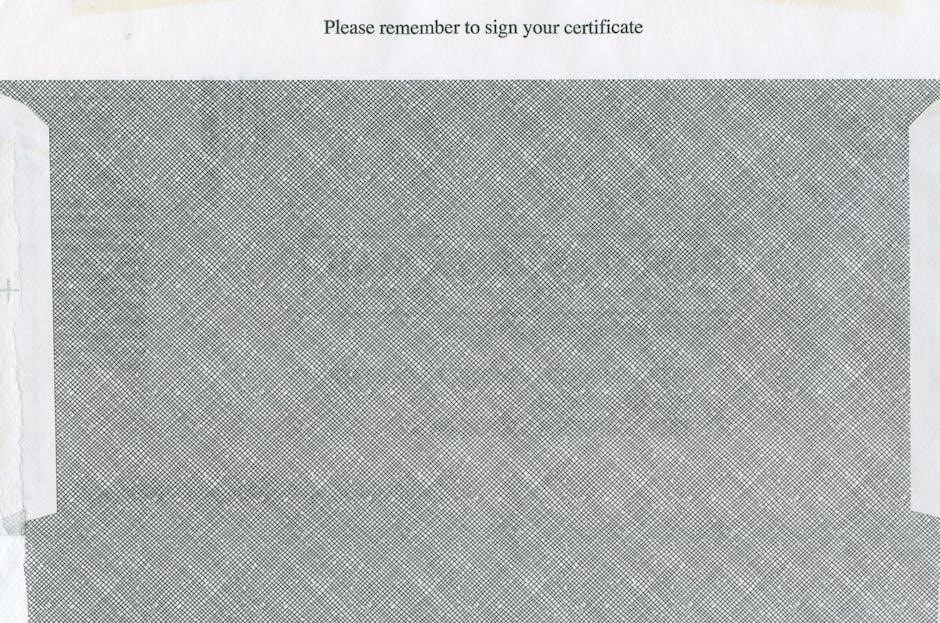Overview of Curriculum and Instruction Certification
Curriculum and Instruction Certification provides advanced knowledge and skills for educators to design, implement, and assess effective teaching strategies and curricula, enhancing their professional expertise in education.
1.1 What is Curriculum and Instruction Certification?
Curriculum and Instruction Certification is a graduate-level program designed for educators seeking to enhance their expertise in curriculum design, instructional strategies, and educational assessment. It provides advanced training in creating standards-based curricula, integrating technology, and improving teaching methods. This certification is ideal for teachers, curriculum specialists, and educational leaders aiming to advance their skills and contribute to effective educational outcomes in various learning environments.
1.2 Importance in Education
Curriculum and Instruction Certification plays a vital role in enhancing educational quality by equipping educators with advanced skills to design and deliver effective curricula. It emphasizes evidence-based practices, technology integration, and data-driven instruction, leading to improved student outcomes. Certified educators are better prepared to address diverse learning needs, fostering academic excellence and equity in education. This certification also supports educators in becoming leaders and innovators within their schools and districts, contributing to systemic educational improvement.
Types of Certifications Available
Various certifications include graduate certificates, post-master’s certificates, and specialized certifications, each tailored to enhance educators’ expertise in curriculum design, instruction, and assessment at different career stages.
2.1 Graduate Certificates
Graduate certificates in Curriculum and Instruction are designed for educators seeking to enhance their skills in curriculum design, instructional strategies, and educational technology. These programs typically consist of 9-12 credit hours and can be completed within one year. They focus on developing expertise in creating effective lesson plans, aligning curricula with educational standards, and integrating technology into teaching. Offered online or on-campus, these certificates provide flexibility for working professionals aiming to advance their teaching methodologies and improve student learning outcomes.
2.2 Post-Master’s Certificates
Post-Master’s Certificates in Curriculum and Instruction are designed for educators who have already earned a master’s degree but seek specialized certification or advanced professional development. These programs typically require 15-18 credit hours and focus on areas like curriculum supervision, instructional leadership, and advanced teaching strategies. They provide practical training for educators aiming to transition into roles such as curriculum specialists, department heads, or instructional coaches, enhancing their leadership and curriculum development skills.
2.3 Specialized Certifications
Specialized certifications in Curriculum and Instruction allow educators to deepen their expertise in specific areas, such as literacy, special education, or educational technology. These certifications are designed for professionals seeking to enhance their skills in niche domains or address particular student needs. They often involve targeted coursework and practical training, enabling educators to become specialists in areas like curriculum design for diverse learners or integrating technology into instruction effectively.

Benefits of Obtaining Certification
Obtaining certification in Curriculum and Instruction enhances professional growth, improves teaching effectiveness, and expands career opportunities. It equips educators with advanced skills to positively impact student learning outcomes.
3.1 Professional Advancement
Earning a Curriculum and Instruction Certification opens pathways for educators to advance their careers. It positions them for leadership roles, such as curriculum specialists or instructional coaches, and enhances credibility. The certification also prepares educators to pursue advanced degrees or certifications, further elevating their professional standing. By gaining specialized knowledge, educators can lead educational initiatives and contribute to systemic improvements in teaching and learning environments, making them invaluable assets to their institutions.
3.2 Enhanced Teaching Skills
Curriculum and Instruction Certification equips educators with advanced teaching strategies, enabling them to create engaging, standards-aligned lessons. Educators gain expertise in instructional design, classroom management, and differentiated instruction. They learn to integrate technology and evidence-based practices, fostering a more effective and inclusive learning environment. These enhanced skills empower teachers to address diverse student needs, promoting academic success and fostering a love of learning among their students.
3.3 Career Opportunities in Curriculum Development
Curriculum and Instruction Certification opens doors to specialized roles in curriculum development, enabling educators to design and implement innovative educational programs. Professionals can pursue positions as curriculum specialists, instructional designers, or educational consultants. This certification also prepares individuals for leadership roles in schools, districts, or private education companies, focusing on creating effective, standards-aligned curricula and assessing program effectiveness to enhance student outcomes and institutional success.
Program Components
Programs typically include core courses focusing on curriculum design, instructional strategies, and assessment methods, along with electives for specialization, preparing educators to enhance teaching and learning experiences effectively.
4.1 Core Courses
Core courses in Curriculum and Instruction certification programs focus on curriculum design, teaching methodologies, and classroom management. These courses emphasize evidence-based practices, educational technology integration, and alignment with academic standards. Students learn to develop lesson plans, assess student progress, and adapt instruction for diverse learners. The curriculum also covers theories of learning, instructional strategies, and data-driven decision-making to enhance teaching effectiveness and student outcomes. These foundational courses prepare educators to design and deliver impactful instruction.
4.2 Electives and Specializations
Electives and specializations in Curriculum and Instruction certification allow educators to tailor their expertise. These courses cover specialized areas such as curriculum development, educational technology, and differentiated instruction. Electives may focus on emerging trends, diverse learner needs, or subject-specific strategies. Specializations enable educators to deepen their knowledge in areas like reading education, special education, or STEM integration, preparing them to address specific challenges and enhance student learning outcomes effectively.
Curriculum Design and Development
Curriculum design and development involves creating effective educational frameworks that align with learning objectives and standards, ensuring engaging and impactful instruction for diverse student needs and outcomes.
5.1 Creating Effective Lesson Plans
Creating effective lesson plans involves aligning learning objectives with instructional strategies, assessments, and resources. Educators use curriculum standards, evidence-based practices, and technology to design engaging, adaptable plans that cater to diverse student needs. These plans are structured to promote active learning, critical thinking, and skill development, ensuring measurable outcomes. By integrating real-world applications and differentiation, educators can craft meaningful experiences that foster academic success and prepare students for future challenges.
5.2 Aligning with Educational Standards
Aligning curriculum and instruction with educational standards ensures that teaching practices meet established benchmarks for student learning. Educators use evidence-based methods to integrate state and national standards into lesson plans, assessments, and instructional strategies. This alignment promotes consistency, accountability, and measurable student outcomes. By focusing on standards-based education, teachers can design curricula that address core competencies, preparing students to succeed in diverse educational settings and beyond.
Instructional Strategies
Instructional strategies in curriculum and instruction certification focus on evidence-based methods and innovative techniques to enhance teaching effectiveness and student engagement, supported by technology and research.
6.1 Evidence-Based Practices
Evidence-based practices in curriculum and instruction certification emphasize the use of research-supported teaching methods to improve student outcomes. These strategies are grounded in scientific studies and real-world applications, ensuring educators can implement effective lesson plans and assessments. By focusing on proven techniques, such as differentiated instruction and technology integration, educators can address diverse learning needs and create engaging classrooms. This approach also equips teachers with the skills to analyze data and adapt instruction for better results.
6.2 Technology Integration
Technology integration in curriculum and instruction certification focuses on incorporating digital tools and resources to enhance teaching and learning. Educators learn to effectively use educational software, online platforms, and multimedia to create interactive and personalized lesson plans. This approach fosters student engagement and cater to diverse learning styles. By integrating technology, teachers can improve classroom efficiency, enhance collaboration, and prepare students for the digital age. It also supports data-driven instruction to track student progress and adapt teaching methods accordingly.

Assessment and Evaluation
Assessment and evaluation are crucial for measuring student learning and improving instruction. They involve using various methods to collect data, analyze progress, and refine teaching strategies effectively.
7.1 Methods for Measuring Student Learning
Assessment methods include formative and summative evaluations, quizzes, projects, and standardized tests; These tools help educators gauge student progress, understanding, and mastery of curriculum goals. Data from these assessments informs instructional adjustments, ensuring tailored support and improved learning outcomes. Technology-enhanced tools, such as online quizzes and portfolios, also provide comprehensive insights into student performance, enabling educators to refine teaching strategies effectively.
7.2 Using Data to Improve Instruction
Using data to improve instruction involves analyzing student performance metrics to identify strengths and areas for growth. Educators use assessment results, progress monitoring, and learning analytics to refine teaching strategies. By leveraging data, teachers can personalize instruction, address learning gaps, and enhance overall student outcomes. This data-driven approach fosters a culture of continuous improvement, ensuring that instructional methods remain effective and aligned with student needs.
Online and Hybrid Learning Options
Online and hybrid programs offer flexible scheduling, allowing educators to balance study with professional commitments, providing accessible pathways to certification in curriculum and instruction.
8.1 Flexibility of Online Programs
Online curriculum and instruction certification programs provide unparalleled flexibility, allowing educators to complete coursework on their schedule. With 24/7 access to learning materials, professionals can balance career and study seamlessly. Many programs offer asynchronous learning, enabling students to engage with content at their convenience. This flexibility is particularly beneficial for working teachers, ensuring they can enhance their skills without disrupting their current commitments or responsibilities.
8.2 Combining with Masters or Other Certifications
Many curriculum and instruction certification programs offer the flexibility to combine with a Master’s degree or other specialized certifications. This dual approach allows educators to enhance their qualifications while streamlining their education pathway. By integrating certifications, professionals can gain advanced skills in curriculum design and instruction, broadening their career opportunities. This option is particularly appealing for those seeking to expand their expertise in specialized areas or leadership roles within education.
Admission Requirements
Admission typically requires a Bachelor’s or Master’s degree, relevant teaching experience, minimum GPA, transcripts, and state-specific certification criteria, varying by program and institution.
9.1 Prerequisites for Different Programs
Prerequisites for Curriculum and Instruction certification programs vary by institution and program level. Graduate certificates may require a Bachelor’s degree and teaching experience, while post-master’s programs often demand a Master’s degree. Some programs specify a minimum GPA, submission of transcripts, and state-specific teaching certification. Additional requirements might include letters of recommendation, personal statements, or prerequisite courses in education. State-specific certifications may also mandate additional documentation or background checks.

Career Paths and Opportunities
Curriculum and Instruction certification opens pathways to leadership roles such as curriculum specialists, instructional coaches, and education leaders, enhancing career advancement in education.
10.1 Roles in Education Beyond Teaching
Curriculum and Instruction certification prepares educators for roles like curriculum specialists, instructional coaches, and education leaders. These professionals design curricula, mentor teachers, and lead educational initiatives, impacting systemic improvement. They work in schools, districts, or educational organizations, driving innovation and ensuring alignment with educational standards. These roles require advanced knowledge of pedagogy, curriculum design, and leadership, making certified educators ideal candidates for such positions.

Maintaining and Renewing Certification
Maintaining certification involves completing continuing education courses, professional development, and periodic renewals to stay updated on educational practices and standards, ensuring educators remain proficient and effective in their roles.
11.1 Continuing Education Requirements
Continuing education requirements for certification renewal typically involve completing a set number of credit hours or professional development courses. These courses focus on updating educators’ knowledge of current teaching methodologies, technologies, and educational standards. Many programs offer flexible online formats to accommodate working professionals. The goal is to ensure educators remain proficient in evidence-based practices and stay current with advancements in curriculum design and instructional strategies to maintain their certification and enhance student outcomes effectively.

Impact on Student Learning
Certified educators enhance student learning by implementing evidence-based practices, creating effective lesson plans, and aligning instruction with educational standards, fostering academic growth and improved outcomes.
12.1 How Certified Educators Influence Outcomes
Certified educators significantly influence student learning by employing evidence-based instructional strategies, creating tailored lesson plans, and aligning teaching with educational standards. Their expertise fosters improved academic performance, higher engagement, and better understanding of diverse learning needs, ultimately leading to enhanced student outcomes and success in achieving educational goals.
State-Specific Requirements
State-specific requirements for certification vary, often involving unique coursework, exams, or teaching experience. Educators must adhere to their state’s education department regulations for certification eligibility.
13.1 Variations in Certification Across States
Certification requirements for curriculum and instruction vary significantly across states, with differences in coursework, exams, and teaching experience. Some states require specific subject-area endorsements, while others mandate additional training in areas like special education or technology integration. Out-of-state educators must often complete supplementary courses or certifications to meet local standards. These variations emphasize the importance of consulting state-specific education department guidelines to ensure compliance with regional requirements.
Choosing the Right Program
Selecting the right curriculum and instruction certification program involves considering factors like program format, curriculum alignment with career goals, and the institution’s reputation for academic excellence.
14.1 Factors to Consider for Prospective Students
Prospective students should evaluate program formats, curriculum alignment with career goals, institution reputation, and faculty expertise. Consider online or hybrid options for flexibility, credit hours, and entry terms. Consideration of program accreditation and state-specific certification requirements is crucial. Additionally, assess support services, such as mentorship and career resources, to ensure the program meets individual needs and professional objectives.
Advanced Professional Certification
Advanced certification prepares educators for leadership roles, enhancing their ability to design innovative curricula and mentor fellow educators, while advancing their expertise in instructional strategies and curriculum development.
15.1 Moving to Leadership Roles
Advanced certification equips educators to transition into leadership roles, such as curriculum specialists, instructional coaches, or department heads. These roles involve designing district-wide curricula, mentoring teachers, and driving educational innovation. Leaders with advanced certification are empowered to influence instructional practices, align curricula with standards, and foster a culture of continuous improvement in schools. This certification signifies expertise, preparing educators to address complex educational challenges and contribute to systemic improvements in teaching and learning environments.
Curriculum and Instruction Certification empowers educators to enhance teaching practices, design effective curricula, and advance their careers, ultimately improving student outcomes and educational excellence.
16.1 Summary and Final Thoughts
Curriculum and Instruction Certification is a transformative pathway for educators, offering advanced skills in curriculum design, instructional strategies, and assessment. It equips teachers to meet diverse student needs, align teachings with educational standards, and integrate technology effectively. By pursuing this certification, educators can enhance their professional growth, expand career opportunities, and contribute to improved student outcomes. With flexible online options and continuous learning requirements, it remains a vital investment for dedicated professionals seeking to excel in education.